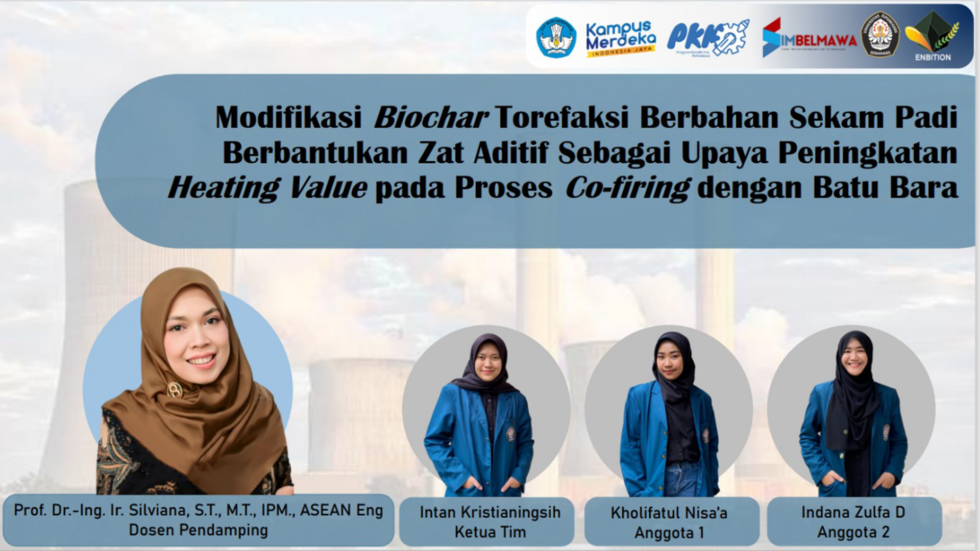Indonesia is a country that is very dependent on coal as an energy source. According to the Energy Institute, in 2023, coal will contribute around 50% of the total energy mix in Indonesia, with consumption increasing every year. This dependence has the potential to produce carbon dioxide emissions which have a negative impact on the environment.
The problem of excessive coal consumption is one of the concerns raised by the PKM RE Team from the Undip Chemical Engineering Department. The team consisting of Intan Krisingsih, Kholifatul Aliyahtun Nisa’a, and Indana Zulfa D with guidance from Prof. Dr-Ing. Ir. Silviana, S.T, M.T, IPM, ASEAN Eng. it develops a way to reduce coal use by creating environmentally friendly biomass using a co-firing process. Biomass co-firing is the process of mixing biomass with coal to be used as fuel in power plants. This process offers several advantages.
First, co-firing can reduce carbon dioxide emissions significantly because biomass is considered a carbon neutral energy source. Second, this method allows the use of waste, such as agricultural waste, to become a valuable energy source.
The PKM RE team then chose rice husk waste as biomass to replace coal. Rice husk waste was chosen because it has a fairly high calorific value, namely 17.43 MJ/Kg. To increase the calorific value to be equivalent to coal, additives are then added via the torrefaction method.
“To increase the calorific value of rice husks, we carry out pre-treatment using the torrefaction method, namely by heating the biomass at a relatively low temperature in conditions of minimal oxygen. “As a result, rice husk waste, which previously had a lower calorific value than coal, can increase to almost the same as coal,” said Intan Krisingsih as one of the team members. By adding additives such as glycerol, sunflower seed oil, and used cooking oil, the PKM RE Team of the Undip Chemical Engineering Department succeeded in modifying rice husk waste biochar into biochar with combustion results that are similar to coal. In the future, this can be used as an environmentally friendly solution to reduce Indonesia’s dependence on coal. Article from the PKM RE Team, Department of Chemical Engineering, Undip
